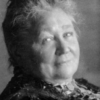Are you happy now? Are you likely to remain so till this evening? or next week? or next month? or next year? Then why destroy present happiness by a distant misery, which may never come at all, or you may never live to see it? for ever substantial grief has twenty shadows, and most of them shadows of your own making.
Sydney Smith (1771-1845) English clergyman, essayist, wit
Memoir of the Reverend Sydney Smith, by His Daughter, Lady Holland, Vol. 1, ch. 11 (1855)
(Source)
Advice for fighting melancholy / depression / anxiety by "taking short views of life" and not borrowing trouble.
Quotations about:
melancholy
Note not all quotations have been tagged, so Search may find additional quotes on this topic.
There is nothing like employment, active indispensable employment, for relieving sorrow. Employment, even melancholy, may dispel melancholy, and her occupations were hopeful.
All changes are more or less tinged with melancholy, for what we are leaving behind is part of ourselves.
Amelia E. Barr (1831-1919) British novelist and teacher.
All the Days of My Life, ch. 6 (1913)
(Source)
See Anatole France.
For whoever reflects on the nature of things, the various turns of life, and the weakness of human nature, grieves, indeed, at that reflection; but while so grieving he is, above all other times, behaving as a wise man: for he gains these two things by it; one, that while he is considering the state of human nature he is performing the especial duties of philosophy, and is provided with a triple medicine against adversity: in the first place, because he has long reflected that such things might befall him, and this reflection by itself contributes much towards lessening and weakening all misfortunes; and, secondly, because he is persuaded that we should bear all the accidents which can happen to a man, with the feelings and spirit of a man; and lastly, because he considers that what is blameable is the only evil; but it is not your fault that something has happened to you which it was impossible for man to avoid.
[Neque enim qui rerum naturam, qui vitae varietatem, qui imbecillitatem generis humani cogitat, maeret, cum haec cogitat, sed tum vel maxime sapientiae fungitur munere. Utrumque enim consequitur, ut et considerandis rebus humanis proprio philosophiae fruatur officio et adversis casibus triplici consolatione sanetur: primum quod posse accidere diu cogitavit, quae cogitatio una maxime molestias omnes extenuat et diluit; deinde quod humana humane ferenda intelligit; postremo quod videt malum nullum esse nisi culpam, culpam autem nullam esse, cum id, quod ab homine non potuerit praestari, evenerit.]
Marcus Tullius Cicero (106-43 BC) Roman orator, statesman, philosopher
Tusculan Disputations [Tusculanae Disputationes], Book 3, ch. 16 (3.16) / sec. 34 (45 BC) [tr. Yonge (1853)]
(Source)
(Source (Latin)). Alternate translations:
For he that considers the order of Nature, and the Vicissitudes of Life, and the Frailty of Mankind is not melancholly when he considers these things, but is then most principally imploy'd in the exercise of Wisdom, for he reaps a double advantage; both that in the consideration of man's circumstances, he enjoyeth the proper Office of Philosophy; and in case of Adversity, he is supported by a threefold Consolation. First, that he hath long consider'd that such accidents might come; which consideration alone doth most weaken and allay all Afflictions. Then he cometh to learn, that all Tryals common to men, should be born, as such, patiently. Lastly, that he perceiveth there is no Evil, but where is blame; but there is no blame, when that falls out, the Prevention of which, was not in man to warrant.
[tr. Wase (1643)]
For whoever reflects on the nature of things, the various turns of life, the weakness of human nature, grieves indeed at that reflection; but that grief becomes him as a wise man, for he gains these two points by it; when he is considering the state of human nature he is enjoying all the advantage of philosophy, and is provided with a triple medicine against adversity. The first is, that he has long reflected that such things might befall him, which reflection alone contributes much towards lessening all misfortunes: the next is, that he is persuaded, that we should submit to the condition of human nature: the last is, that he discovers what is blameable to be the only evil. But it is not your fault that something lights on you, which it was impossible for man to avoid.
[tr. Main (1824)]
For neither does he who contemplates the nature of things, the mutations of life, the fragility of man, grieve when he thinks of these matters, but then most especially exercises the office of wisdom. For, by the study of human affairs, he at once pursues the proper aim of philosophy, and provides himself with a triple consolation for adverse events: -- first, that he has long deemed them possible to arrive; which one consideration has the greatest efficacy for the extenuation and mitigation of all misfortune: and, next, he perceives that human accidents are to be borne like a man: and, finally, because he sees there is no evil but fault, and that there is no fault where that has happened which man could not have prevented.
[tr. Otis (1839)]
Indeed, he who thinks of the nature of things, of the varying fortune of life, of the weakness of the human race, does not sorrow when these things are on his mind, but he then most truly performs the office of wisdom; for from such thought there are two consequences, -- the one, that he discharges the peculiar function of philosophy; the other, that in adversity he has the curative aid of a threefold consolation: first, because, as he has long thought what may happen, this sole thought is of the greatest power in attenuating and diluting every trouble; next, because he understands that human fortunes are to be borne in a way befitting human nature; -- lastly, because he sees that there is no evil but guilt, while there is no guilt in the happening of what man could not have prevented.
[tr. Peabody (1886)]
For the person who reflects on the nature of things, on the variety of life, and the precarity of human existence is not sad in considering these things but is carrying out the duty of wisdom in the fullest way. For they pursue both in enjoying the particular harvest of philosophy by considering what happens in human life and in suffering adverse outcomes by cleansing with a three-part solace. First, by previously accepting the possibility of misfortune—which is the most way of weakening and managing any annoyance and second, by learning that human events must be endured humanely; and third, by recognizing that there is nothing evil except for blame and there is no blame when the event is something against which no human can endure.
[tr. @sentantiq (2021)]
All those men who are preeminent in philosophy or politics or poetry or the other arts are clearly melancholic.
Aristotle (384-322 BC) Greek philosopher
Problems [Problemata], Book 30, Q. 1 / 953a [tr. @sentantiq (2018)]
(Source)
Possibly one of the sources of a famous misattributed Aristotle quotation by Seneca the Younger.
Alternate translation: "All those who have become eminent in philosophy or politics or poetry or the arts are clearly of an atrabilious temperament." [tr. Forster (1927)]
By virtue of depression, we recall those misdeeds we buried in the depths of our memory. Depression exhumes our shames.
Emile Cioran (1911-1995) Romanian philosopher and essayist [E.M. Cioran]
Anathemas and Admirations, ch. 11 “That Fatal Perspicacity” (1986) [tr. R. Howard (1991)]
(Source)
KATHERINE: He made her melancholy, sad, and heavy,
And so she died. Had she been light like you,
Of such a merry, nimble, stirring spirit,
She might ha’ been a grandam ere she died.
And so may you, for a light heart lives long.William Shakespeare (1564-1616) English dramatist and poet
Love’s Labour’s Lost, Act 5, sc. 2, l. 15ff (5.2.15-19) (c. 1595)
(Source)
To Rosaline.
Sorrow is a kind of rust of the soul, which every new idea contributes in its passage to scour away. It is the putrefaction of stagnant life, and is remedied by exercise and motion.
Samuel Johnson (1709-1784) English writer, lexicographer, critic
The Rambler, #47 (28 Aug 1750)
(Source)
The work is an absolute necessity for me. I can’t put it off, I don’t care for anything but the work; that is to say, the pleasure in something else ceases at once and I become melancholy when I can’t go on with my work. Then I feel like a weaver who sees that his threads are tangled, and the pattern he had on the loom is gone to hell, and all his thought and exertion is lost.
Vincent van Gogh (1853-1890) Dutch painter
Letter to Theo Van Gogh (3 Jun 1883)
(Source)
Quoted in A. Lubin, Stranger on the Earth : A Psychological Biography of Vincent Van Gogh (1996). Alternate transalations:
For me, the work is an absolute necessity. I cannot put it off; I don't care for anything else; that is to say, the pleasure in something else ceases at once, and I become melancholy when I cannot go on with my work. I feel then as the weaver does when he sees that his threads have got tangled, the pattern he had on the loom has gone to the deuce, and his exertion and deliberation are lost.
[In I. & J. Stone, ed., Dear Theo: the Autobiography of Vincent Van Gogh (1995)]
For me work is an absolute necessity, indeed I can’t really drag it out, I take no more pleasure in anything than in work, that’s to say, pleasure in other things stops immediately and I become melancholy if I can’t get on with the work. Then I feel like a weaver when he sees his threads getting tangled and the pattern that he had on the loom going to the devil and his thought and effort coming to nothing.
[tr. VanGoghLetters.org]
All changes, even the most longed for, have their melancholy; for what we leave behind us is a part of ourselves; we must die to one life before we can enter into another!
Anatole France (1844-1924) French poet, journalist, novelist, Nobel Laureate [pseud. of Jaques-Anatole-François Thibault]
The Crime of Sylvestre Bonnard, Part 2, ch. 4 (1881) [tr. L. Hearn (1890)]
(Source)
Never give way to melancholy; resist it steadily, for the habit will encroach.
Sydney Smith (1771-1845) English clergyman, essayist, wit
Memoir of the Reverend Sydney Smith, by His Daughter, Lady Holland, Vol. 1, ch. 10 (1855)
(Source)
In chapter 11 is a parallel quotation from Smith: "Never give way to melancholy: nothing encroaches more; I fight against it vigorously."
But Lady Holland observes that in Smith's notebook he also wrote, "I wish I were of a more sanguine temperament; I always anticipate the worst."
As a confirmed melancholic, I can testify that the best and maybe only antidote for melancholia is action. However, like most melancholics, I suffer also from sloth.
Edward Abbey (1927-1989) American anarchist, writer, environmentalist
A Voice Crying in the Wilderness, ch. 4, “Life and Death and All That” (1989)
(Source)














